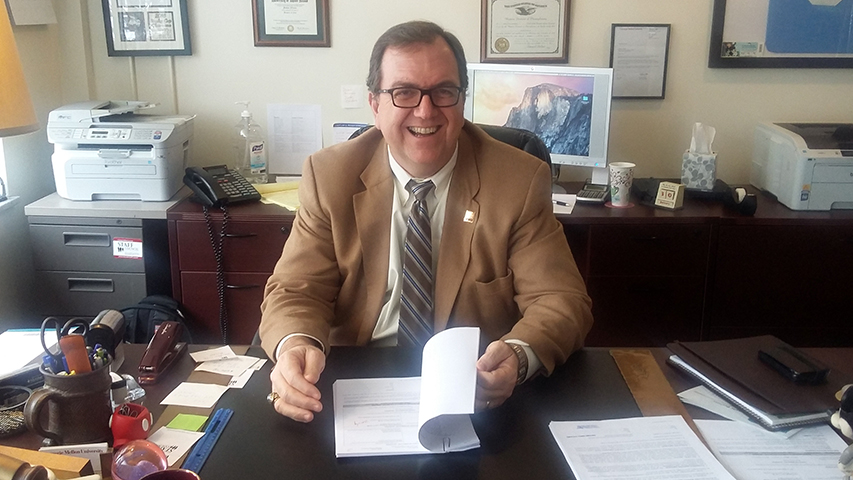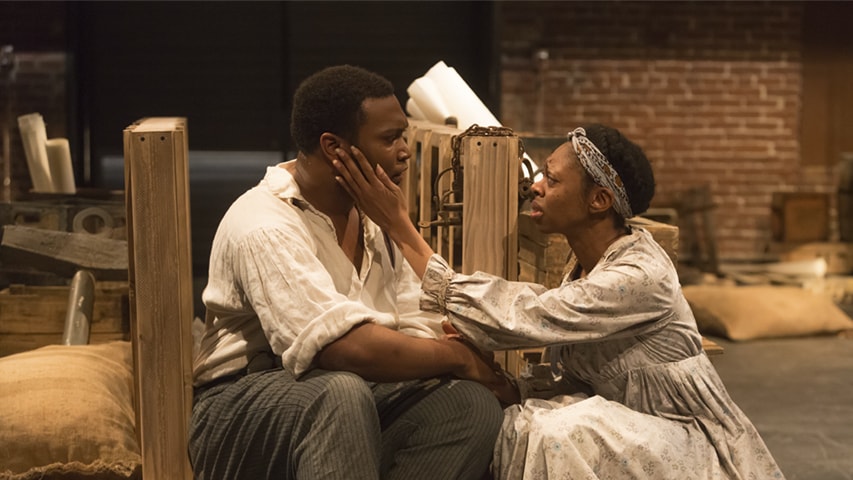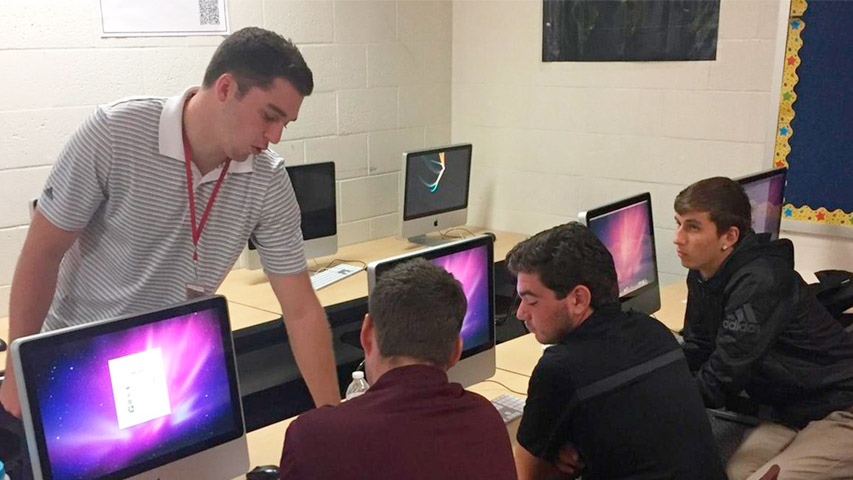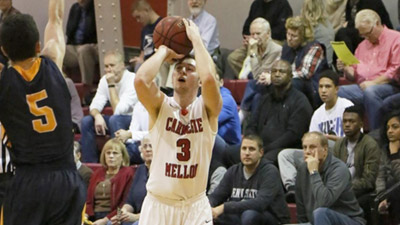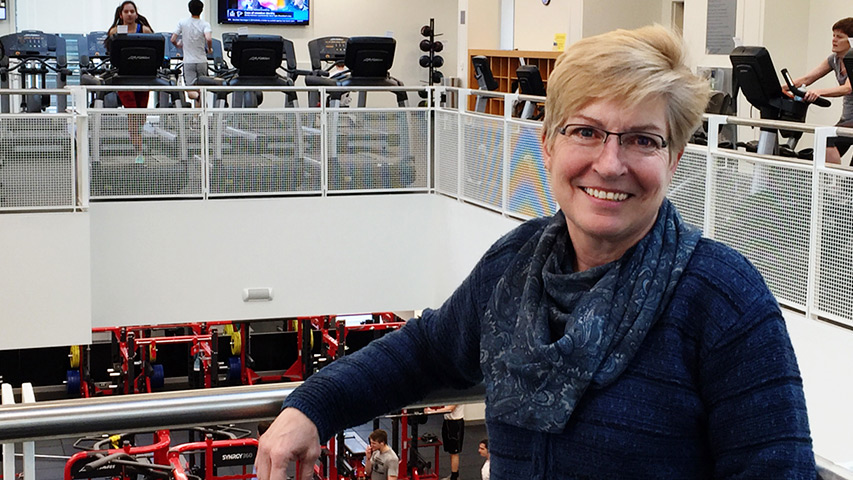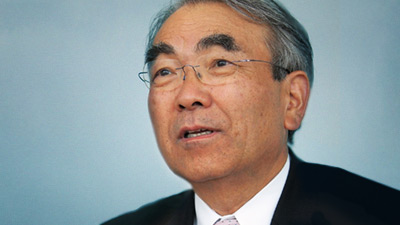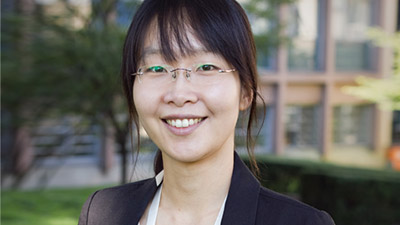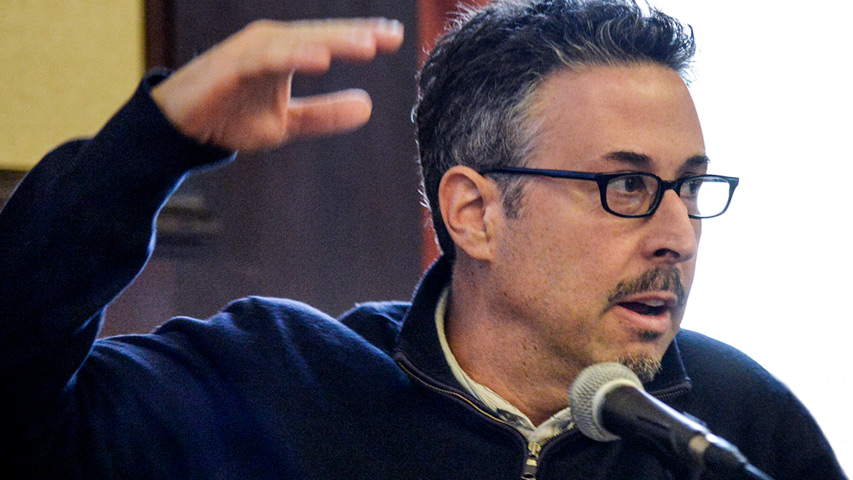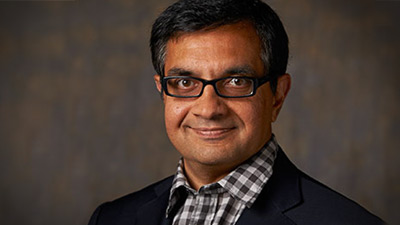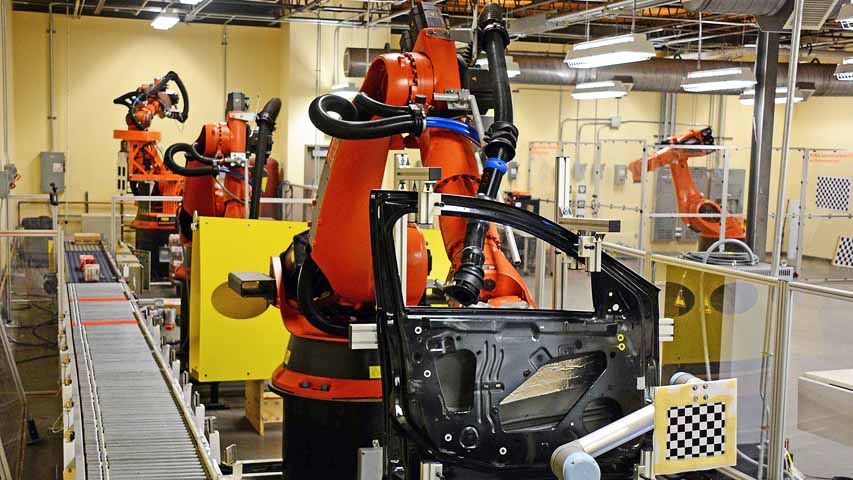
An independent institute founded by Carnegie Mellon University will receive more than $250 million to launch an advanced robotics manufacturing institute in Pittsburgh, the U.S. Department of Defense announced Friday.
The Department of Defense awarded the public-private Manufacturing USA institute to American Robotics, a nonprofit venture led by Carnegie Mellon, with more than 220 partners in industry, academia, government, and the nonprofit sector nationwide. The institute will receive $80 million from the DOD, and an additional $173 million from the partner organizations.
The high-level award puts Pittsburgh and CMU at the center of a new wave of manufacturing, leveraging artificial intelligence, autonomy, 3-D printing and other emerging technologies to make industrial robotics more affordable for businesses of all sizes, adaptable for many uses, and able to achieve more.
Government, industry and academic leaders said this new generation of robotics has the potential to create large numbers of new jobs and fuel economic growth by putting the U.S. squarely in the lead on advanced manufacturing.
"This new institute will provide significant benefits to the region and the nation, while creating enormous opportunities for CMU scholars and researchers, and new momentum for the university," said Carnegie Mellon President Subra Suresh, who spoke at Friday's announcement at the Pentagon. "The institute, in return, will benefit from CMU's expertise in technology, as well as its strengths in policy, ethics, and human interfaces that will ensure that new technologies work to benefit humankind."
Gary Fedder, CMU's vice provost for research, was one of several university faculty and officials who led the development and preparation of the proposal for the institute, and who will play a pivotal role in its establishment.
"When the DOD announced its intention to create a new institute dedicated to robotics manufacturing, we knew that CMU's historic strength in the field, leading to cutting-edge research underway today, gave us a great opportunity," said Fedder, the Howard M. Wilkoff Professor of Electrical and Computer Engineering and a professor at CMU's Robotics Institute. "We were fortunate to build a team that brought complementary strengths from across the nation."
Howie Choset, a professor in Carnegie Mellon's Robotics Institute, worked closely with Fedder in conceiving of and establishing the institute. He said the four-pronged mission of the institute is to empower American workers to compete with low-wage workers abroad; create and sustain new jobs to secure U.S. national prosperity; lower the technical, operational, and economic barriers for small- and medium- sized enterprises as well as large companies to adopt robotics technologies; and assert U.S. leadership in advanced manufacturing.
"This work has the power to benefit society broadly, and to benefit many, many potential workers and their families," Choset said.
The use of robotics is widespread in manufacturing environments but today's robots are typically expensive, singularly purposed, challenging to reprogram, and require isolation from humans for safety. Robotics are increasingly necessary for defense and other industrial manufacturing needs, but capital cost and complexity of use limit the participation of mid-size and small manufacturers. ARM will integrate the diverse collection of industry practices and institutional knowledge across many disciplines.
"The institute will tap into CMU's research strengths in collaborative robotics, sensor technologies, materials science, and human-computer interaction, areas that are rapidly transforming many sectors of our economy," said CMU Provost Farnam Jahanian. "With this unique partnership between academia, government and industry, CMU is poised to bridge the gap between research, innovation and practice in the emerging field of advanced manufacturing."
ARM will achieve its mission through defense- and industry-driven, critical technology development and workforce training. ARM focuses on key industrial sectors — aerospace, automotive, electronics and textiles-defined by its partners.
ARM joins the Manufacturing USA institute network, which is a bipartisan program that brings together industry, academia and government to co-invest in the development of world-leading manufacturing technologies and capabilities. Each Manufacturing USA institute focuses on a technology area critical to future competitiveness. In addition to robotics, other areas include 3-D printing, integrated photonics or tissue fabrication. Across the Manufacturing USA institutes, the federal government has committed over $1 billion, which has been matched by over $2 billion in non-federal investment.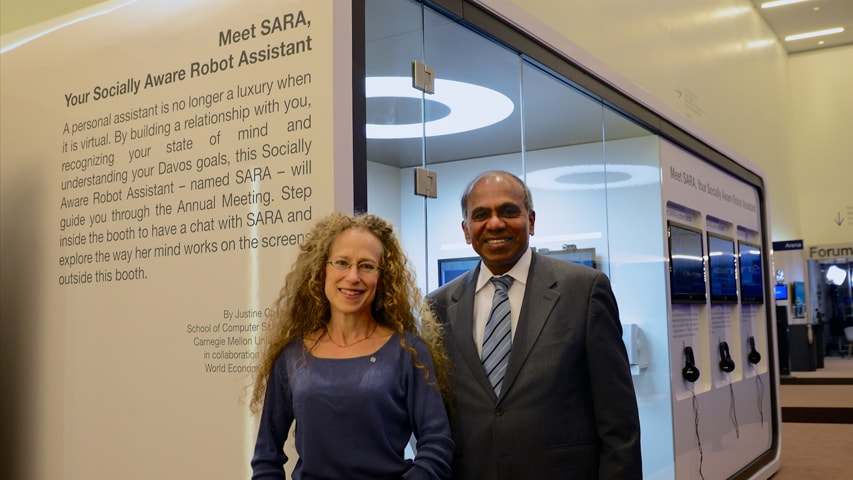 President Subra Suresh and the School of Computer Science's Justine Cassell pose in front of SARA, the Socially-Aware Robot Assistant, at the World Economic Forum.
President Subra Suresh and the School of Computer Science's Justine Cassell pose in front of SARA, the Socially-Aware Robot Assistant, at the World Economic Forum.
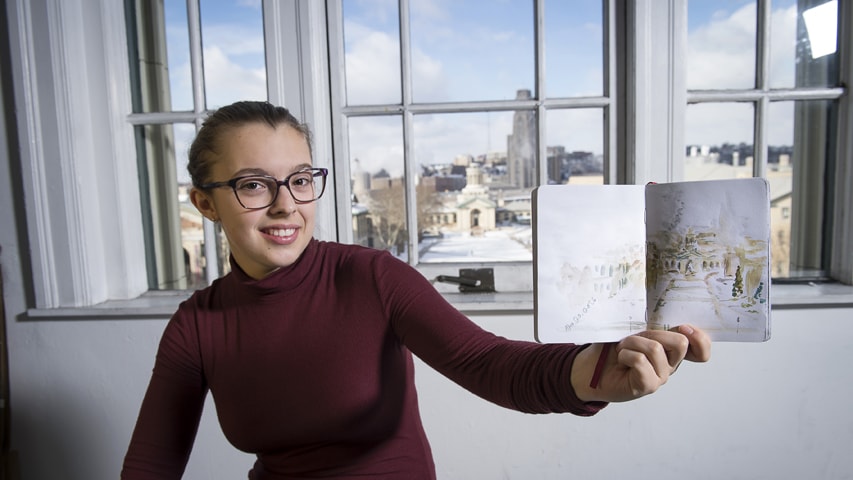

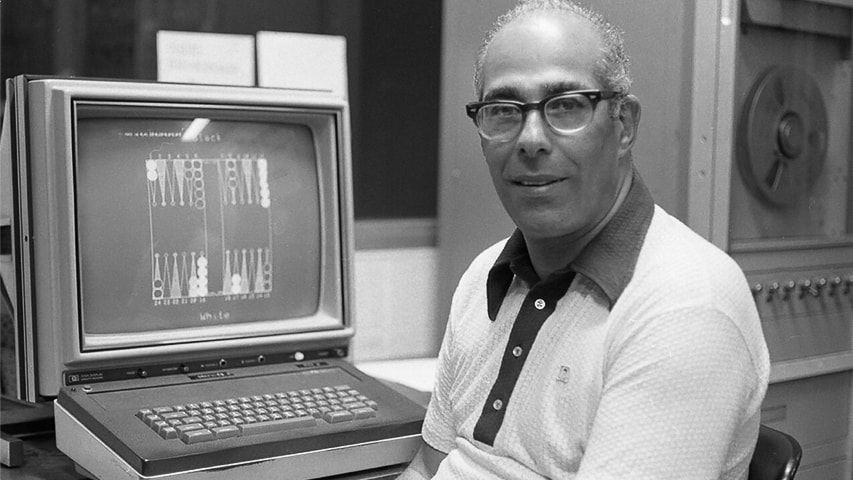 Hans Berliner was at the center of computer chess research for two decades.
Hans Berliner was at the center of computer chess research for two decades.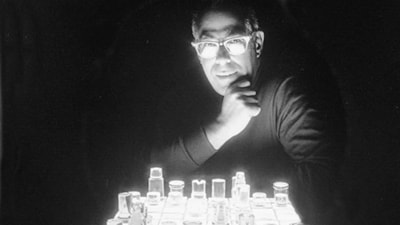
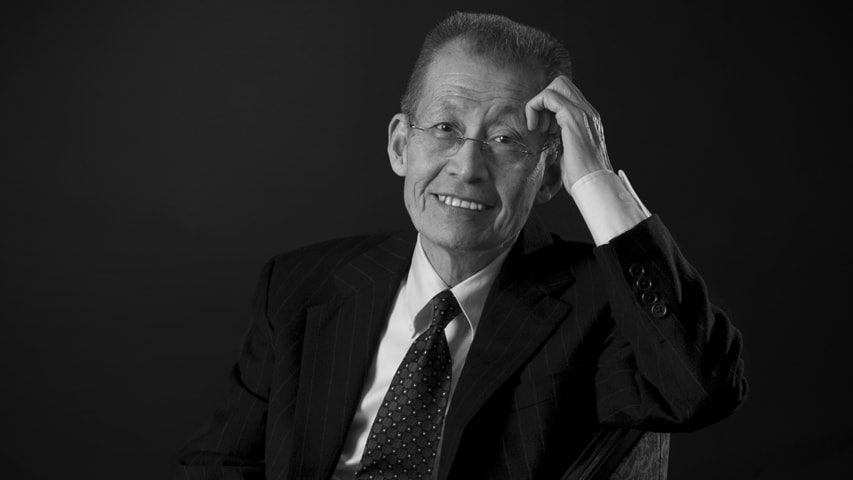
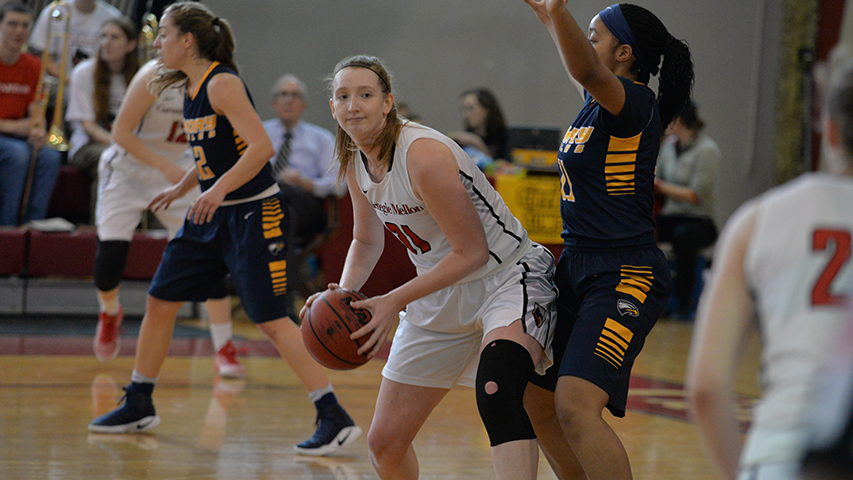
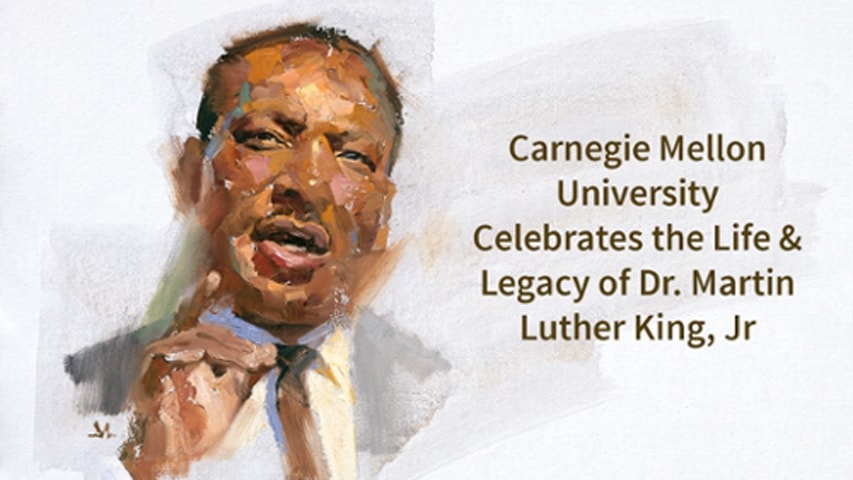
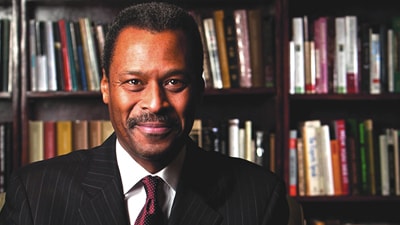
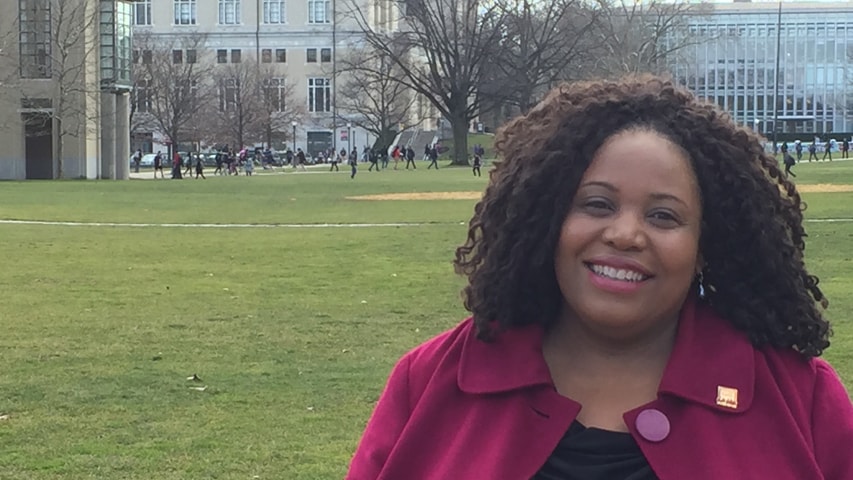
 Alejandro Villanueva is a part-time MBA student at the Tepper School. Photo: Pittsburgh Steelers/Karl Roser
Alejandro Villanueva is a part-time MBA student at the Tepper School. Photo: Pittsburgh Steelers/Karl Roser
